|
By Yvonne Le Everyone knows that “tiger moms” are the types of parents you see yelling at their children about a low A or getting second place in a spelling bee. Obviously this is not a default setting for all asian parents, but from a personal standpoint, I’ve experienced both types of moments where my own parents fit the stereotype but also the heartfelt times that they’ve broken it.
I remember a time when I signed up to play in a talent show, but my dad had supervised my piano practice and promptly determined that I was definitely set to fail and it scared me from participating and I ended up dropping out. “Don’t try it if you can’t do it.” While this value scared me for a good portion of my youth, it slowly began to dawn on me, as I got older, what it really meant and how my father really wasn’t the “tiger dad” that he made himself out to be. The meaning behind this tough love was that he wanted me to pursue my highest potential before presenting my skills and talents to other people. He wasn’t trying to protect “family honor” or his own, he wanted my first performance to be one that I was proud of– no mistakes, plenty of confidence. He wasn’t discouraging or insulting my skills from overseeing my practice, he knew that if I presented what I had at that point in time, I would have never gained enough confidence to play again. At the beginning of this story, I stated that he had determined me “not good enough”, but in reality, I had missed notes, hesitation, uneven articulation; and all of these mistakes were a week before the show. How could I have fixed them beforehand? One could argue that if I had performed, “failure is the best teacher”. But if I had thought that those mistakes were acceptable at that point in time, I would not have become the perfectionist I am now. I would not have nitpicked and practiced more until I was proud of how I sounded. Now, I’m a pianist and violinist, and I’ve made a reputation as the concertmaster of my school orchestra as well as a 7-time all-county participant. I am proud of the musician that I have become today and it’s all because my dad was the “tiger parent” that he was supposed to be.
0 Comments
By Colin Poon
In a year of historic firsts for the AAPI Community in the Media, I personally am most proud of our representation for the eyes of AAPI Youth. As embarrassing as it is, Sesame Street was one of my favorite shows as a child, just like many Americans since Sesame Street first officially aired on November 10th in 1969. And after more than 50 years of airing on PBS, they are introducing their first AAPI Muppet, Ji-Young. According to the Associated Press, Ji-Young is depicted as a 7 Year Old, Korean American born in the USA. Her name is even a hidden hint to show that she belongs on the show, with Ji having the meaning of sesame, though the more traditional definition is smart or wise. And that plays along with the reasoning and need of the creation of Ji-Young as one of the characters on the show. As part of the “Coming Together” Initiative made by Sesame Workshop, Ji-Young was in part a way to combat Anti-Asian Hate and Asian stereotypes. Even through Ji-Young’s personality, who loves to play the Electric Guitar as well as Skateboarding, she helps combat Asian stereotypes like the Model Minority myth. And the need for her presence was shown during an offscreen incident where one of the children tells Ji-Young to, “Go Home”, which shows the discrimination that Asians often face abroad in Western Countries, where they are seen as “perpetual foreigners”. But Ji-Young isn’t just a way to combat hate, she is something that promotes inclusion and diversity in the multicultural aspect that is so lovingly taught by Sesame Street. One of my favorite ways that she does this is by cooking tteokbokki, which are chewy rice cakes, with her halmoni (Grandmother), according to AP News. This brash yet loving character truly truly embodies what should and is proper AAPI Representation. All in all, Ji-Young is not just a symbol of inclusion and racial justice, with one of Sesame Workshop’s executives promising that she will be very active on the show. But Ji-Young will debut amongst AAPI Icons like Simu Liu and Naomi Osaka during the historical moment in introducing an AAPI Character to a Young Children’s Audience across the nation. But this certainly will not be the last time that something like this happens, and I cannot wait to see what is next for AAPI Media Representation in the coming new year. Sources: APNews:https://apnews.com/article/sesame-street-asian-american-muppet-ji-young-390bd29ba9d986524b242e9fa69695be Arizona PBS: https://azpbs.org/2021/11/sesame-street-special-introduces-new-korean-muppet/ Sesame Street on IMDB: https://www.imdb.com/title/tt0063951/ Christmas In South Korea |
| Christmas in the Philippines is unlike any other. For starters, the Christmas season starts not in December, but as early as September 1st. Their celebration lasts throughout all the -ber months and it is then when Christmas traditions such as putting up Christmas trees and decorations up are done. In this season, many stalls are also put up around the neighborhoods where decorations and fireworks are sold. |
| A specific decoration found in the Philippines is the Parol which is a star shaped lantern made of wood and paper, sometimes metal, with a shell called capiz on the outside usually used for window panes. It is a beautiful ornament that glows in the dark at night. Furthermore, another unique tradition in the Philippines is Christmas Carolling. |
| As early as September, many children gather to go around their own neighborhood to Christmas Carol door to door using makeshift instruments as their accompaniment. Christmas also has more of an emphasis on Jesus rather than Santa Claus to the people as well. This all together truly creates a festive and distinct celebration for Christmas and one of the longest in the world. |
Christmas In Vietnam
By Tyson Nguyen
| With Vietnam being a predominantly Buddhist country, many would believe that the Vietnamese people would not celebrate christmas. However, this is not the case. Although not many people in Vietnam are Christians, there are still country wide celebrations of the holiday. The small minority of Christians were the ones that are spreading this holiday around to non-Christians. The influence spread to children to where they believe in Santa Claus, who is also known as, 'Ông già Noel'. Attributed from Christian influence, people would go to Midnight Mass services to listen to Christmas music and watch many plays. Vietnamese people celebrate this holiday differently than what we are used to. |
| There is a huge emphasis on Christmas eve and that is when the majority of the celebrations are happening. On Christmas Eve, the streets are filled with the people as they close down the street just for Christmas Eve. During Christmas,there are a variety of games played ranging from traditional drinking games to western games such as Monopoly and Uno. Vietnam has a heavy drinking culture so one of the games played would be to see who can outdrink everyone else! If you aren’t a heavy drinker, Monopoly and Uno would be the perfect game to play with the Vietnamese since these games are one of the more popular western games. |
Japan During Christmastime
By Serina Kaochari
| Christmas has only become widely celebrated in Japan in the last few decades. Several customs from the United States, such as gift and card giving are popular in Japan. Unlike the West's family gatherings, Christmas represents a time for friends and couples to celebrate. Moreover, Christmas is not seen as a religious holiday or celebration as there aren't many Christians in Japan. |
Dubbed the most romantic holiday, Christmas Eve is renowned for couples spending time together and exchanging presents. It resembles Valentine's Day celebrations in the UK and the USA in many ways. Young couples like to go for walks to look at the Christmas lights and have a romantic meal in a restaurant.
| Many families celebrate Christmas by eating Kentucky Fried Chicken (KFC), a popular Japanese Christmas tradition. This tradition started in 1974 with an ad campaign called "Kentucky for Christmas." This campaign was successful and kick-started KFC's popularity around Christmastime in Japan. Another popular Christmas food is the Japanese Christmas Cake (kurisumamu keike). It's a sponge cake decorated with layers of whipped cream, topped with cut strawberries. This beloved dessert is sold on practically every corner around the winter months. From gatherings to fried chicken, holiday traditions allow vast cultures to celebrate Christmas uniquely! |
Merry Christmas and Happy Holidays from R.E.A.C.H. of Central Florida!!
By Ashley Ding
“You’re only smart because you’re Asian.”
We have all heard of the “model minority” stereotype. The American Psychological Association defines it as a belief that “Asian Americans are a uniformly high-achieving racial minority that has assimilated well into American society through hard work, obedience to social mores and academic achievement.” These stereotypes completely discredit the effort the individual has put into their work and use the person’s skin color as the sole reason they are hard working.
Unfortunately, the toxic model minority stereotype is not the only one. East Asians, Southeast Asians, and South Asians have all been affected differently. According to The New York Times, “South Asians are more likely to fall victim to stereotypes about terrorism.” East Asians have experienced racist remarks surrounding the COVID-19 pandemic. Some Southeast Asians are not even seen as Asians by others just because of the color of their skin.
As an Asian American whose parents immigrated from China in the 21st century, I have been subjected to these stereotypes ever since I was a child, so much that I was used to it. For example, there was a playground chant in elementary school that went like this: a student would make their eyes slant up and say “Chinese”, then slant them down and say “Japanese”, then brush their knees and chant “dirty knees.” I didn’t even realize they were mocking me and my Asian American peers. This saying was chanted on for years in my childhood, but the stereotyping did not stop there. In middle school, March 2020, I was called “bat soup” and was told to stay away from other kids because I was Chinese.
Asians have been inappropriately stereotyped for decades, but especially during the pandemic. Asians are discriminated against more than ever before, with detrimental effects on their mental health. The stereotype that Asians don’t fight back makes other people justify using terms such as the “Chinese virus” or the “Kung flu.” In reality, Asian Americans experience mental abuse from people using these terms to ridicule them. A Harvard blog articulates the mental and physical suffering of the victims and Asian Americans; “The relentless drumbeat of headlines and viral videos depicting unprovoked violence against Asian Americans contributes to vicarious trauma, even for those not directly attacked.” We need to stop the anti-Asian racism by starting with educating others about the diversity of Asian culture.
Sources:
Harvard Health. “Anti-Asian Racism: Breaking Through Stereotypes and Silence.” Harvard Health, 16 Apr. 2021, www.health.harvard.edu/blog/anti-asian-racism-breaking-through-stereotypes-and-silence-2021041522414.
Nguyen, Viet Thanh. “Asian Americans Are Still Caught in the Trap of the ‘Model Minority’ Stereotype. And It Creates Inequality for All.” Time, 27 June 2020, time.com/5859206/anti-asian-racism-america.
The New York Times. “Confronting Asian-American Stereotypes.” The New York Times, 23 June 2018, www.nytimes.com/2018/06/23/us/confronting-asian-american-stereotypes.html.
Abrams, Z. (2019, December). Countering stereotypes about Asian Americans. Monitor on Psychology, 50(11). http://www.apa.org/monitor/2019/12/countering-stereotypes
“You’re only smart because you’re Asian.”
We have all heard of the “model minority” stereotype. The American Psychological Association defines it as a belief that “Asian Americans are a uniformly high-achieving racial minority that has assimilated well into American society through hard work, obedience to social mores and academic achievement.” These stereotypes completely discredit the effort the individual has put into their work and use the person’s skin color as the sole reason they are hard working.
Unfortunately, the toxic model minority stereotype is not the only one. East Asians, Southeast Asians, and South Asians have all been affected differently. According to The New York Times, “South Asians are more likely to fall victim to stereotypes about terrorism.” East Asians have experienced racist remarks surrounding the COVID-19 pandemic. Some Southeast Asians are not even seen as Asians by others just because of the color of their skin.
As an Asian American whose parents immigrated from China in the 21st century, I have been subjected to these stereotypes ever since I was a child, so much that I was used to it. For example, there was a playground chant in elementary school that went like this: a student would make their eyes slant up and say “Chinese”, then slant them down and say “Japanese”, then brush their knees and chant “dirty knees.” I didn’t even realize they were mocking me and my Asian American peers. This saying was chanted on for years in my childhood, but the stereotyping did not stop there. In middle school, March 2020, I was called “bat soup” and was told to stay away from other kids because I was Chinese.
Asians have been inappropriately stereotyped for decades, but especially during the pandemic. Asians are discriminated against more than ever before, with detrimental effects on their mental health. The stereotype that Asians don’t fight back makes other people justify using terms such as the “Chinese virus” or the “Kung flu.” In reality, Asian Americans experience mental abuse from people using these terms to ridicule them. A Harvard blog articulates the mental and physical suffering of the victims and Asian Americans; “The relentless drumbeat of headlines and viral videos depicting unprovoked violence against Asian Americans contributes to vicarious trauma, even for those not directly attacked.” We need to stop the anti-Asian racism by starting with educating others about the diversity of Asian culture.
Sources:
Harvard Health. “Anti-Asian Racism: Breaking Through Stereotypes and Silence.” Harvard Health, 16 Apr. 2021, www.health.harvard.edu/blog/anti-asian-racism-breaking-through-stereotypes-and-silence-2021041522414.
Nguyen, Viet Thanh. “Asian Americans Are Still Caught in the Trap of the ‘Model Minority’ Stereotype. And It Creates Inequality for All.” Time, 27 June 2020, time.com/5859206/anti-asian-racism-america.
The New York Times. “Confronting Asian-American Stereotypes.” The New York Times, 23 June 2018, www.nytimes.com/2018/06/23/us/confronting-asian-american-stereotypes.html.
Abrams, Z. (2019, December). Countering stereotypes about Asian Americans. Monitor on Psychology, 50(11). http://www.apa.org/monitor/2019/12/countering-stereotypes
By Alvin Li
Japan was founded and inhabited around 30,000 B.C.E, it has changed its capital city many times. Despite this, there have been 3 main cities that have been defined to be the former capitals in Japanese history. Japan’s first recorded permanent capital was Heijō-kyō during the Nara period. It was located south of Kyoto today in the Nara Prefecture. The capital was moved to Kuni-kyō in 740 in the Kyoto Prefecture, but it only lasted 4 years before it moved again. Instead of moving to a new location, however, the capital was moved back to Heijō-kyō due to the public pressuring the emperor and compromises from opposing parties. Nagaoka-kyō was the next location in 784 within the Kyoto Prefecture, but once again, the capital was changed after 10 years. During the Heian Period, the year 794 saw the movement of the capital once again to Heian-kyō or also known more commonly as Kyoto. These changes are to reflect where the seat of the Emperor and the central government of Japan is located.
There are a total of 13 periods in Japan’s entire history. The earliest 3 periods of Japan are the Jomon, Yayoi, and Yamato periods, which lasted from around 10,000 B.C.E to 710 A.D. During this time, it was mostly the people shifting from hunter-gatherers to agriculture and meeting Chinese and Korean influence. When the Nara period started, the imperial government was located in Nara and Japanese culture started to develop itself from other growing Asian influences. Things like religion, literature, and proper government systems, which were mainly inspired by China, were set inside Japan. Japanese culture continued to flourish and grow during the Heian Period. At this point in history, art was at an all-time high and could be referred to as the Golden Age of classical Japanese culture. However, the periods following the Heian period until the Edo period, which included the Kamakura, Ashikaga, Azuchi-Momoyama periods, had many battles against both external forces and internal powers. It was not until the Edo period in 1603 that Japan finally saw lasting peace and the imperial system was restored again. The Meiji Period starting in 1868 saw modernization and defending Japan from western influence. The latest 3 periods of Japanese history are the Taishō, Showa, and Postwar Periods of Japan, which all occurred in the 20th century. Modernization and technological advances are happening all around the world and Japan is not missing out. The current period is the Postwar period and Japan seems to be doing well even during the pandemic.
As for the political conflicts and reasons that made these changes in the location of the capital city, there are a few. The main reason is just the simple change of emperors. Since the Capital is usually the seat of the Emperor, if the emperor were to move anywhere, that new location would be stated to be the capital. Another reason that the capital might be moved is opposition from other clans, rebellions. and noble families that hold a lot of power in government. Continuing on, natural disasters and attacks from external forces cause the capital to be relocated. This is one of the reasons Nagaoka-kyō was moved a decade after it was declared the capital, as flooding was a frequent occurrence. There are definitely more reasons, but these are the 3 most common reasons that capitals might change and this could be seen all across the world, not just in Japan.
Around 1868, the capital moved from Kyoto, which has been Japan’s capital city for more than a millennium, to Tokyo. Tokyo was originally named Edo before the Meiji government changed the name to Tokyo and settled there. As time went on Tokyo saw lots of ups and downs. 1923 was the devastating Great Kanto Earthquake. Later on would be both World War 1 and 2, and the Pacific War which damage the entirety of Japan. Since then, a lot of western influence has also started to impact the way Japan was run. Censuses were conducted, a more democratic government was put in, and Japan would eventually join the United Nations. After several long periods in Japanese history lasting many millennia, Tokyo will probably stay as Japan’s capital city for quite some time to come.
Sources:
https://www.japan-guide.com/e/e641.html
https://www.oyakata.com.pl/en/oyakata-masters-book/travels/4-former-capital-cities-of-japan
https://www.japanpitt.pitt.edu/timeline
https://www.metro.tokyo.lg.jp/ENGLISH/ABOUT/HISTORY/history01.htm
There are a total of 13 periods in Japan’s entire history. The earliest 3 periods of Japan are the Jomon, Yayoi, and Yamato periods, which lasted from around 10,000 B.C.E to 710 A.D. During this time, it was mostly the people shifting from hunter-gatherers to agriculture and meeting Chinese and Korean influence. When the Nara period started, the imperial government was located in Nara and Japanese culture started to develop itself from other growing Asian influences. Things like religion, literature, and proper government systems, which were mainly inspired by China, were set inside Japan. Japanese culture continued to flourish and grow during the Heian Period. At this point in history, art was at an all-time high and could be referred to as the Golden Age of classical Japanese culture. However, the periods following the Heian period until the Edo period, which included the Kamakura, Ashikaga, Azuchi-Momoyama periods, had many battles against both external forces and internal powers. It was not until the Edo period in 1603 that Japan finally saw lasting peace and the imperial system was restored again. The Meiji Period starting in 1868 saw modernization and defending Japan from western influence. The latest 3 periods of Japanese history are the Taishō, Showa, and Postwar Periods of Japan, which all occurred in the 20th century. Modernization and technological advances are happening all around the world and Japan is not missing out. The current period is the Postwar period and Japan seems to be doing well even during the pandemic.
As for the political conflicts and reasons that made these changes in the location of the capital city, there are a few. The main reason is just the simple change of emperors. Since the Capital is usually the seat of the Emperor, if the emperor were to move anywhere, that new location would be stated to be the capital. Another reason that the capital might be moved is opposition from other clans, rebellions. and noble families that hold a lot of power in government. Continuing on, natural disasters and attacks from external forces cause the capital to be relocated. This is one of the reasons Nagaoka-kyō was moved a decade after it was declared the capital, as flooding was a frequent occurrence. There are definitely more reasons, but these are the 3 most common reasons that capitals might change and this could be seen all across the world, not just in Japan.
Around 1868, the capital moved from Kyoto, which has been Japan’s capital city for more than a millennium, to Tokyo. Tokyo was originally named Edo before the Meiji government changed the name to Tokyo and settled there. As time went on Tokyo saw lots of ups and downs. 1923 was the devastating Great Kanto Earthquake. Later on would be both World War 1 and 2, and the Pacific War which damage the entirety of Japan. Since then, a lot of western influence has also started to impact the way Japan was run. Censuses were conducted, a more democratic government was put in, and Japan would eventually join the United Nations. After several long periods in Japanese history lasting many millennia, Tokyo will probably stay as Japan’s capital city for quite some time to come.
Sources:
https://www.japan-guide.com/e/e641.html
https://www.oyakata.com.pl/en/oyakata-masters-book/travels/4-former-capital-cities-of-japan
https://www.japanpitt.pitt.edu/timeline
https://www.metro.tokyo.lg.jp/ENGLISH/ABOUT/HISTORY/history01.htm
Written by Andrea Sison and Rebekah Joe
It is to no surprise when people hear of Asians being successful, but why is that? Asians tend to be looked at at a higher standard, something society constructed and is eventually formed into a norm. Asians are seen to have close proximity to whiteness. With their successes in the economy and society, Asians are seen to have a privilege that minorities do not usually have.
A common argument is tailored in this concept: If “white privilege” is oppressive then why does research show that Asian Americans tend to have higher income and status than most populations. Bill O’Reilly, a conservative commentator, stated in an editorial that Asian household incomes were 20% higher than white household incomes. The question as to why this is his answer was that Asians tend to have a more collectivist culture and education is held at utmost importance. This claim has been used since at least in the 1960s when faced with the challenges the civil rights movements sparked. Newspapers printed portraits of Asian Americans to cast skepticism on the population that was marching for social and economic justice. The Asians were seen as independent, not needing help as other minorities did, they were progressing on their own.
This also ties back in with the model minority myth, which is deeply misunderstood. Yes, Asians are successful but this was not the case when the first immigration happened. The Asian community did not start at the top. Asian Americans were known as laborers with the lowest wages. Over the decades, overcoming poverty, discrimination, and racial violence, Asians climbed and earned their way up the socioeconomic ladder. The success of Asians does not simply show their achievements but also points out that being a minority meant working harder in order to achieve something that a White person could achieve with greater ease and less effort.
Although being well educated and having education as a top priority as a value was made as a point as to how Asians managed to climb their way to success, research suggests that society simply became less racist towards the Asian community. While looking at the progress from 1940 to 1980, even with varying educational accomplishments, the steady closing of the wage gap by Asians was seen, supporting the claim of education not really playing a role in the socioeconomic success of Asians. Racist prejudice was softening after WWII. Asians were being accepted to more institutions and even earning a raise in their wage. Journalists and public opinion shifted as Asians are now being branded and publicized as being hard workers, educationally competent, easy-going, and rarely complains. Opportunities were opened up to them.
However, even looking at the unemployment rates over the past 10 years, we can see the effects of systemic racism and implicit bias. While generally, Asians have a lower unemployment rate compared to other minorities and sometimes even compared to whites, during the coronavirus, those results drastically changed. Whites remained the last impacted by the racism and financial turmoil of COVID-19 while the rates in Asian unemployment shot up. While these rising rates are not fully attributed to the virus, the government’s narrative in blaming a particular race definitely contributed to it.
Nonetheless, Asians were quick to realize in order to survive and achieve the “American Dream” or whatever goal they have, they must be quick to adapt and assimilate. They are quick to pick up certain concepts and change their mindsets, setting them closer to the Whites. Their values and thoughts are now plagued with racist ideas and concepts, remember everyone must be held accountable. Some choose to set their lifestyles in a more similar fashion to the Whites in order to make them feel safe and accumulated to their community. Yes, Asians are discriminated against but this does not mean they have their own outlook on certain individuals as well. They just learned that this is how society works and have integrated it into their own morale. Systemic racism, racism is catered depending on the situation.
Sources:
GuoBioBio, Jeff Guo closeJeff. “The Real Secret to Asian American Success Was Not Education.” Washington Post, November 19, 2016. https://www.washingtonpost.com/news/wonk/wp/2016/11/19/the-real-secret-to-asian-american-success-was-not-education/.
Jr, Dae Shik Kim. “Why Be a ‘Model Minority’ When You Could Dismantle White Supremacy?” www.thenation.com, June 30, 2020. https://www.thenation.com/article/society/asian-americans-antiblackness-antiracism/.
A common argument is tailored in this concept: If “white privilege” is oppressive then why does research show that Asian Americans tend to have higher income and status than most populations. Bill O’Reilly, a conservative commentator, stated in an editorial that Asian household incomes were 20% higher than white household incomes. The question as to why this is his answer was that Asians tend to have a more collectivist culture and education is held at utmost importance. This claim has been used since at least in the 1960s when faced with the challenges the civil rights movements sparked. Newspapers printed portraits of Asian Americans to cast skepticism on the population that was marching for social and economic justice. The Asians were seen as independent, not needing help as other minorities did, they were progressing on their own.
This also ties back in with the model minority myth, which is deeply misunderstood. Yes, Asians are successful but this was not the case when the first immigration happened. The Asian community did not start at the top. Asian Americans were known as laborers with the lowest wages. Over the decades, overcoming poverty, discrimination, and racial violence, Asians climbed and earned their way up the socioeconomic ladder. The success of Asians does not simply show their achievements but also points out that being a minority meant working harder in order to achieve something that a White person could achieve with greater ease and less effort.
Although being well educated and having education as a top priority as a value was made as a point as to how Asians managed to climb their way to success, research suggests that society simply became less racist towards the Asian community. While looking at the progress from 1940 to 1980, even with varying educational accomplishments, the steady closing of the wage gap by Asians was seen, supporting the claim of education not really playing a role in the socioeconomic success of Asians. Racist prejudice was softening after WWII. Asians were being accepted to more institutions and even earning a raise in their wage. Journalists and public opinion shifted as Asians are now being branded and publicized as being hard workers, educationally competent, easy-going, and rarely complains. Opportunities were opened up to them.
However, even looking at the unemployment rates over the past 10 years, we can see the effects of systemic racism and implicit bias. While generally, Asians have a lower unemployment rate compared to other minorities and sometimes even compared to whites, during the coronavirus, those results drastically changed. Whites remained the last impacted by the racism and financial turmoil of COVID-19 while the rates in Asian unemployment shot up. While these rising rates are not fully attributed to the virus, the government’s narrative in blaming a particular race definitely contributed to it.
Nonetheless, Asians were quick to realize in order to survive and achieve the “American Dream” or whatever goal they have, they must be quick to adapt and assimilate. They are quick to pick up certain concepts and change their mindsets, setting them closer to the Whites. Their values and thoughts are now plagued with racist ideas and concepts, remember everyone must be held accountable. Some choose to set their lifestyles in a more similar fashion to the Whites in order to make them feel safe and accumulated to their community. Yes, Asians are discriminated against but this does not mean they have their own outlook on certain individuals as well. They just learned that this is how society works and have integrated it into their own morale. Systemic racism, racism is catered depending on the situation.
Sources:
GuoBioBio, Jeff Guo closeJeff. “The Real Secret to Asian American Success Was Not Education.” Washington Post, November 19, 2016. https://www.washingtonpost.com/news/wonk/wp/2016/11/19/the-real-secret-to-asian-american-success-was-not-education/.
Jr, Dae Shik Kim. “Why Be a ‘Model Minority’ When You Could Dismantle White Supremacy?” www.thenation.com, June 30, 2020. https://www.thenation.com/article/society/asian-americans-antiblackness-antiracism/.
Written by Andrea Sison and Rebekah Joe
Starting off with examples, Asian-American students being complemented to having really good English when it is their first language, defensiveness of people when seeing black men, women being cut off conversations by men. These examples may be simple and common but these are actually microaggressions. Although many perceive taking offense by these actions as being overly sensitive, these open up discussions on how much societal ideas truly are integrated into everyday life. Microaggressions happen when people use biases of groups on a person leaving them offended or uncomfortable. These are the common everyday instances of racism, sexism, and more. It can be an insult, a comment, or a gesture. They are subtle, intentional, but oftentimes unintentional ways to communicate to someone with some sort of bias.
Microaggressions are something more than simple jokes and remarks. Microaggression actions come from concepts made in relation to a person’s membership to a marginalized group. Microaggressions were coined because of the insults that were thrown at Black individuals. It then started to be used on other minorities as well.
Although these are called “micro” aggressions, the consequences aren’t small. The frequent occurrence of these can be related to people not realizing that they are taking part in microaggressive rhetoric. Many simply act because of internalized bias. A theme that most have trouble with is color blindness, this is when people refuse to acknowledge race. Although many can see this as a good thing, it really is not that great. This is especially seen with adopted Asian kids with non-Asian parents. “There is only one race, the human race.” “When I look at you, I don’t see color.” Being denied one’s race can also mean being denied one’s culture. When race is disregarded, an identity is not let to be identified. Also, a consequence of this is that when this mindset is set in a family with an adopted kid, not from the same race, then this singles them out. Mostly, this mindset of having no race is just applied to family, once faced with others, race is suddenly a real concrete concept that they base their schemas on. The Cherokee County Sheriff’s Office Captain, the one that stated the Atlanta shooter to only be having a “bad day” and has been found sharing racist things on his Facebook, has an adopted Vietnamese brother.
Since this is mostly an unconscious action, one cannot be truly blamed for practicing this. Although this cannot be dismissed. If something says or does something racist and makes you feel uncomfortable then it is what it is, a bad act is a bad act. A step of action is being aware of your personal bias and impact. You can also commit to working on how to minimize the concept of microaggressions. Another way is to establish relationships with others to learn more about their personal stories and cultures. The more we know about different stereotypes, the more your preconceived wall ideas are shattered, and the less you stereotype others. Microaggressions can take a toll on the mental health of the recipients of these microaggressive actions. It can make the school or work environment of the people more hostile as stereotypes integrated more in everyday conversations. The constant stream of insults, even if they are subtle, can add up and greatly affect an individual and lead to unjustified treatment.
Microaggressions encompass many concepts, insults can be based on race, gender, ethnicity, and religion. Microaggressions are made by everyone and are directed to everyone. Let’s take initiative to take responsibility for our actions and rethink the way we think about others, especially with microaggressions.
Sources:
Chung, Nicole. “What Would My White Family Think about Anti-Asian Racism?” Time, March 22, 2021. https://time.com/5948949/anti-asian-racism-white-adoptive-family/.
DeAngelis, Tori. “Unmasking ‘Racial Micro Aggressions.’” Https://Www.apa.org, 2009. https://www.apa.org/monitor/2009/02/microaggression.
Jenée Desmond-Harris. “What Exactly Is a Microaggression?” Vox. Vox, February 16, 2015. https://www.vox.com/2015/2/16/8031073/what-are-microaggressions.
Limbong, Andrew. “Microaggressions Are a Big Deal: How to Talk Them out and When to Walk Away : Life Kit.” NPR.org, June 9, 2020. https://www.npr.org/2020/06/08/872371063/microaggressions-are-a-big-deal-how-to-talk-them-out-and-when-to-walk-away.
Sue, Derald, Christina Capodilupo, Gina Torino, Jennifer Bucceri, Aisha Holder, Kevin Nadal, and Marta Esquilin. “APA PsycNet.” psycnet.apa.org, 2007. https://psycnet.apa.org/record/2007-07130-001.
Microaggressions are something more than simple jokes and remarks. Microaggression actions come from concepts made in relation to a person’s membership to a marginalized group. Microaggressions were coined because of the insults that were thrown at Black individuals. It then started to be used on other minorities as well.
Although these are called “micro” aggressions, the consequences aren’t small. The frequent occurrence of these can be related to people not realizing that they are taking part in microaggressive rhetoric. Many simply act because of internalized bias. A theme that most have trouble with is color blindness, this is when people refuse to acknowledge race. Although many can see this as a good thing, it really is not that great. This is especially seen with adopted Asian kids with non-Asian parents. “There is only one race, the human race.” “When I look at you, I don’t see color.” Being denied one’s race can also mean being denied one’s culture. When race is disregarded, an identity is not let to be identified. Also, a consequence of this is that when this mindset is set in a family with an adopted kid, not from the same race, then this singles them out. Mostly, this mindset of having no race is just applied to family, once faced with others, race is suddenly a real concrete concept that they base their schemas on. The Cherokee County Sheriff’s Office Captain, the one that stated the Atlanta shooter to only be having a “bad day” and has been found sharing racist things on his Facebook, has an adopted Vietnamese brother.
Since this is mostly an unconscious action, one cannot be truly blamed for practicing this. Although this cannot be dismissed. If something says or does something racist and makes you feel uncomfortable then it is what it is, a bad act is a bad act. A step of action is being aware of your personal bias and impact. You can also commit to working on how to minimize the concept of microaggressions. Another way is to establish relationships with others to learn more about their personal stories and cultures. The more we know about different stereotypes, the more your preconceived wall ideas are shattered, and the less you stereotype others. Microaggressions can take a toll on the mental health of the recipients of these microaggressive actions. It can make the school or work environment of the people more hostile as stereotypes integrated more in everyday conversations. The constant stream of insults, even if they are subtle, can add up and greatly affect an individual and lead to unjustified treatment.
Microaggressions encompass many concepts, insults can be based on race, gender, ethnicity, and religion. Microaggressions are made by everyone and are directed to everyone. Let’s take initiative to take responsibility for our actions and rethink the way we think about others, especially with microaggressions.
Sources:
Chung, Nicole. “What Would My White Family Think about Anti-Asian Racism?” Time, March 22, 2021. https://time.com/5948949/anti-asian-racism-white-adoptive-family/.
DeAngelis, Tori. “Unmasking ‘Racial Micro Aggressions.’” Https://Www.apa.org, 2009. https://www.apa.org/monitor/2009/02/microaggression.
Jenée Desmond-Harris. “What Exactly Is a Microaggression?” Vox. Vox, February 16, 2015. https://www.vox.com/2015/2/16/8031073/what-are-microaggressions.
Limbong, Andrew. “Microaggressions Are a Big Deal: How to Talk Them out and When to Walk Away : Life Kit.” NPR.org, June 9, 2020. https://www.npr.org/2020/06/08/872371063/microaggressions-are-a-big-deal-how-to-talk-them-out-and-when-to-walk-away.
Sue, Derald, Christina Capodilupo, Gina Torino, Jennifer Bucceri, Aisha Holder, Kevin Nadal, and Marta Esquilin. “APA PsycNet.” psycnet.apa.org, 2007. https://psycnet.apa.org/record/2007-07130-001.
Written by Andrea Sison
In light of the pandemic, Asian hate crimes have increased. As COVID-19 was regarded as the “China Virus'' or the “Wuhan Virus,” many took their frustrations out on the Asian community. Although it cannot be wholly attributed to the government’s representation of the Corona Virus, mostly during the first occurence, it did catalyze the hate the AAPI community have received. The surge of the hate crimes happened in March and April of 2020, when COVID-19 started to get worse in America. This has left the Asian community in a constant state of wariness as attacks have been more frequent across the nation.
Everyone in the AAPI community is vulnerable, hate was shown to all ages and gender, elderly were attacked, kids bullied, many generalized Asian people and came to a conclusion that they were the cause of the spread of COVID-19. Although it did originate in China, the surge of cases everywhere cannot be blamed on Asian people. The spread came with the shortcomings of the government and everyone, not many took it seriously until it disrupted their own lives.
In a year’s span, 2019-2020, hate crimes have decreased overall by 7% BUT hate crimes towards Asians have increased by nearly 150%. Nearly 3,800 incidents of Asian hate were reported in 2020, significantly higher from 2019’s 2,600 reports. This data includes reports from March 19, 2020 to February 2021, almost 503 of the reported incidents took place in 2021 alone. 68.1% were verbal harassment, 20.5% were shunning, and the 3rd most common category being 11.1% was physical assault. These incidents included threats, discrimination, and harassment. Research saw a pattern, many targeted the women, the elderly, and the youth, this was concluded as they were the “weak” ones, the vulnerable, an easy target. Another conclusion with having many elderly attacks is because the elderly are now receiving their vaccines and are more often out and about, making them more vulnerable to encounters. Even with the high number of reports many believe that this isn’t all of it, many incidents still go unreported as they are dismissed.
In February 2021 a Chinese man walking home near the neighborhood in Manhattan’s Chinatown was stabbed, the perpetrator was charged with attempted murder but was not considered a hate crime as prosecutors determined that evidence was lacking in order to prove a racist motive. March 17 2021 , An elderly Asian woman in San Francisco was punched in the face. The attacker also attacked another elderly Asian man shortly before this incident. Week of March 7th 2021, an elderly Asian man was killed in Oakland by an ex-convict with a history of “victimizing elderly Asian people”, he was charged with murder. An elderly Asian man was killed in January in San Francison, the perpetrator pleaded not guilty after being charged with murder. March 16 2021 in Atlanta, 8 women were shot, 6 of them being of Asian descent, the attack was not condemened to be racially motivated, the attacker was said to be “having a bad day” and his actions were blamed on “sex addiction.” It was said that the women he killed were “a temptation that he wanted to eliminate,” he was charged with murder but this was also not charged as a hate crime.
In light of recent events, violence against the Asian community has been brought to the frontlines. Anti-Asian discrimination congressional hearing, a rare occurrence, is now held, many are advocating for the stop of hate towards the AAPI community. The recent events led to the voices of Asians being heard and amplified. Many are empowering and encouraging the AAPI community. Racism towards Asians are usually disregarded as it is such a common occurrence, making it a “normal” thing. This can be attributed to the model minority myth and Asians proximity to whiteness (Check out our post about the model minority myth for a deeper take!). Asians are viewed as successful and easygoing individuals, they have everything going for them. “Jokes” on Asians are usually dismissed, as this is not viewed as a racist act, when in reality these ideas are devaluing and limiting Asians. Although being part of the POC community, Asians are seen to be in close proximity with the Whites as society views them to have the same characteristics. Many are successful, economically and socially, with this, Asians are not seen as a vulnerable group, making the dismissal of hate actions towards them all that much easier.
It is time to stop with the generalization. It is time to acknowledge hate targeted to the Asian community. It is time to start with change. Time to speak up. Time to stand up. Stop AAPI hate.
Sources:
Hayes, Elinor Aspegren, Ryan W. Miller and Christal. “Georgia Spa Shootings: Suspect Officially Charged after 8 People Killed at 3 Businesses; Most Victims Were Asian.” USA TODAY, 17 Mar. 2021, www.usatoday.com/story/news/nation/2021/03/17/georgia-massage-parlor-shootings-what-we-know-suspect-motive/4728084001/. Accessed 19 Mar. 2021.
Hong, Nicole, and Jonah E. Bromwich. “Asian-Americans Are Being Attacked. Why Are Hate Crime Charges so Rare?” The New York Times, 18 Mar. 2021, www.nytimes.com/2021/03/18/nyregion/asian-hate-crimes.html.
Rio, Giulia McDonnell Nieto del, et al. “Atlanta Shootings Live Updates: Suspect Had Visited Targeted Spas Before, Police Say.” The New York Times, 18 Mar. 2021, www.nytimes.com/live/2021/03/18/us/atlanta-shootings-massage-spa#congress-hearing-asian-american-discrimination. Accessed 19 Mar. 2021.
Wilkinson, Joseph. “San Francisco Man Attacks Elderly Asian Woman, Ends up Bloodied and Handcuffed to Stretcher after She Fights Back: Witnesses.” Nydailynews.com, 17 Mar. 2021, www.nydailynews.com/news/national/ny-san-francisco-elderly-asian-woman-attacked-assailant-stretcher-20210318-evcupsl6pnb5jhab4xvghus2ui-story.html. Accessed 19 Mar. 2021.
Yam, Kimmy. “Anti-Asian Hate Crimes Increased by Nearly 150% in 2020, Mostly in N.Y. And L.A., New Report Says.” NBC News, 9 Mar. 2021, www.nbcnews.com/news/asian-america/anti-asian-hate-crimes-increased-nearly-150-2020-mostly-n-n1260264.
Yam, Kimmy. “There Were 3,800 Anti-Asian Racist Incidents, Mostly against Women, in Past Year.” NBC News, 16 Mar. 2021, www.nbcnews.com/news/asian-america/there-were-3-800-anti-asian-racist-incidents-mostly-against-n1261257.
Everyone in the AAPI community is vulnerable, hate was shown to all ages and gender, elderly were attacked, kids bullied, many generalized Asian people and came to a conclusion that they were the cause of the spread of COVID-19. Although it did originate in China, the surge of cases everywhere cannot be blamed on Asian people. The spread came with the shortcomings of the government and everyone, not many took it seriously until it disrupted their own lives.
In a year’s span, 2019-2020, hate crimes have decreased overall by 7% BUT hate crimes towards Asians have increased by nearly 150%. Nearly 3,800 incidents of Asian hate were reported in 2020, significantly higher from 2019’s 2,600 reports. This data includes reports from March 19, 2020 to February 2021, almost 503 of the reported incidents took place in 2021 alone. 68.1% were verbal harassment, 20.5% were shunning, and the 3rd most common category being 11.1% was physical assault. These incidents included threats, discrimination, and harassment. Research saw a pattern, many targeted the women, the elderly, and the youth, this was concluded as they were the “weak” ones, the vulnerable, an easy target. Another conclusion with having many elderly attacks is because the elderly are now receiving their vaccines and are more often out and about, making them more vulnerable to encounters. Even with the high number of reports many believe that this isn’t all of it, many incidents still go unreported as they are dismissed.
In February 2021 a Chinese man walking home near the neighborhood in Manhattan’s Chinatown was stabbed, the perpetrator was charged with attempted murder but was not considered a hate crime as prosecutors determined that evidence was lacking in order to prove a racist motive. March 17 2021 , An elderly Asian woman in San Francisco was punched in the face. The attacker also attacked another elderly Asian man shortly before this incident. Week of March 7th 2021, an elderly Asian man was killed in Oakland by an ex-convict with a history of “victimizing elderly Asian people”, he was charged with murder. An elderly Asian man was killed in January in San Francison, the perpetrator pleaded not guilty after being charged with murder. March 16 2021 in Atlanta, 8 women were shot, 6 of them being of Asian descent, the attack was not condemened to be racially motivated, the attacker was said to be “having a bad day” and his actions were blamed on “sex addiction.” It was said that the women he killed were “a temptation that he wanted to eliminate,” he was charged with murder but this was also not charged as a hate crime.
In light of recent events, violence against the Asian community has been brought to the frontlines. Anti-Asian discrimination congressional hearing, a rare occurrence, is now held, many are advocating for the stop of hate towards the AAPI community. The recent events led to the voices of Asians being heard and amplified. Many are empowering and encouraging the AAPI community. Racism towards Asians are usually disregarded as it is such a common occurrence, making it a “normal” thing. This can be attributed to the model minority myth and Asians proximity to whiteness (Check out our post about the model minority myth for a deeper take!). Asians are viewed as successful and easygoing individuals, they have everything going for them. “Jokes” on Asians are usually dismissed, as this is not viewed as a racist act, when in reality these ideas are devaluing and limiting Asians. Although being part of the POC community, Asians are seen to be in close proximity with the Whites as society views them to have the same characteristics. Many are successful, economically and socially, with this, Asians are not seen as a vulnerable group, making the dismissal of hate actions towards them all that much easier.
It is time to stop with the generalization. It is time to acknowledge hate targeted to the Asian community. It is time to start with change. Time to speak up. Time to stand up. Stop AAPI hate.
Sources:
Hayes, Elinor Aspegren, Ryan W. Miller and Christal. “Georgia Spa Shootings: Suspect Officially Charged after 8 People Killed at 3 Businesses; Most Victims Were Asian.” USA TODAY, 17 Mar. 2021, www.usatoday.com/story/news/nation/2021/03/17/georgia-massage-parlor-shootings-what-we-know-suspect-motive/4728084001/. Accessed 19 Mar. 2021.
Hong, Nicole, and Jonah E. Bromwich. “Asian-Americans Are Being Attacked. Why Are Hate Crime Charges so Rare?” The New York Times, 18 Mar. 2021, www.nytimes.com/2021/03/18/nyregion/asian-hate-crimes.html.
Rio, Giulia McDonnell Nieto del, et al. “Atlanta Shootings Live Updates: Suspect Had Visited Targeted Spas Before, Police Say.” The New York Times, 18 Mar. 2021, www.nytimes.com/live/2021/03/18/us/atlanta-shootings-massage-spa#congress-hearing-asian-american-discrimination. Accessed 19 Mar. 2021.
Wilkinson, Joseph. “San Francisco Man Attacks Elderly Asian Woman, Ends up Bloodied and Handcuffed to Stretcher after She Fights Back: Witnesses.” Nydailynews.com, 17 Mar. 2021, www.nydailynews.com/news/national/ny-san-francisco-elderly-asian-woman-attacked-assailant-stretcher-20210318-evcupsl6pnb5jhab4xvghus2ui-story.html. Accessed 19 Mar. 2021.
Yam, Kimmy. “Anti-Asian Hate Crimes Increased by Nearly 150% in 2020, Mostly in N.Y. And L.A., New Report Says.” NBC News, 9 Mar. 2021, www.nbcnews.com/news/asian-america/anti-asian-hate-crimes-increased-nearly-150-2020-mostly-n-n1260264.
Yam, Kimmy. “There Were 3,800 Anti-Asian Racist Incidents, Mostly against Women, in Past Year.” NBC News, 16 Mar. 2021, www.nbcnews.com/news/asian-america/there-were-3-800-anti-asian-racist-incidents-mostly-against-n1261257.
Check out our presentation on Lunar New Year stories narrated and directed by Emme Lee and created by Alex Tao, Aimee Nguyen, Rebekah Joe, and Jiya Sishodia.
Written by Andrea Sison
Because of the lack of representation of Asians in the media people tend to use stereotypes instead. Being a teen is all about exploring and learning about yourself. Having clubs in high school that are associated with representing and explaining Asian cultures could be a big help to Asian American students. This gives them a community of people of the same age that may share common interests. This would help them build a relationship not only with the people but also the culture. This is where they could freely explore their identity and share the experience with others. Clubs like these are also a great way to learn about different cultures as one can be exposed to not only one but many cultures. This could include learning through traditions, foods, or even through people.
Being a part of various cultural clubs can help shape our identity. I see this as an outlet for teens. I think having a community outside of school is really good as we can learn from someone older or be someone who can teach the young. At the same time having a community of people of the same age is a good balance of that interaction. We can relate to each other and we can learn from one another. This could be a place where we could be less formal and really freely express ourselves and discover.
Having clubs like these also help promote the Asian community. We hold festivals, meetings, or watch parties that are associated with the Asian culture. We also share our culture through food and other activities. This could help bring recognition in school and in our community. This could help teens be more confident in sharing themselves. This also brings many opportunities to us to help spread our cultures with others and build new perspectives about Asians. This is something that could help us break the stereotypes that has been established. This helps us prove that we are more than what people believe in. That the stereotypes they use do not define us and should not be what people would use when they first see us. Asian clubs are also fun learning environments. We get to discover new things through various activities, not just by reading and listening to someone. We get to learn through games, movies, or other social activities.
For me, being in an Asian club both in school and out of school has been a fun way to discover a new community. This allowed me to interact with many teens that I can relate with. This is a super fun way to learn about other cultures because I get to share the experience with my new found friends. Being in an Asian club also helped me express myself more, it helped me realize what I stand for. It also gives me a sense of accomplishment whenever I get to volunteer at activities that lead to the spread of culture. I feel very happy sharing my culture and others’ culture to as many people as we can. I also feel like this is a way for me to contribute in educating and spreading awareness of the Asian community.
Being a part of various cultural clubs can help shape our identity. I see this as an outlet for teens. I think having a community outside of school is really good as we can learn from someone older or be someone who can teach the young. At the same time having a community of people of the same age is a good balance of that interaction. We can relate to each other and we can learn from one another. This could be a place where we could be less formal and really freely express ourselves and discover.
Having clubs like these also help promote the Asian community. We hold festivals, meetings, or watch parties that are associated with the Asian culture. We also share our culture through food and other activities. This could help bring recognition in school and in our community. This could help teens be more confident in sharing themselves. This also brings many opportunities to us to help spread our cultures with others and build new perspectives about Asians. This is something that could help us break the stereotypes that has been established. This helps us prove that we are more than what people believe in. That the stereotypes they use do not define us and should not be what people would use when they first see us. Asian clubs are also fun learning environments. We get to discover new things through various activities, not just by reading and listening to someone. We get to learn through games, movies, or other social activities.
For me, being in an Asian club both in school and out of school has been a fun way to discover a new community. This allowed me to interact with many teens that I can relate with. This is a super fun way to learn about other cultures because I get to share the experience with my new found friends. Being in an Asian club also helped me express myself more, it helped me realize what I stand for. It also gives me a sense of accomplishment whenever I get to volunteer at activities that lead to the spread of culture. I feel very happy sharing my culture and others’ culture to as many people as we can. I also feel like this is a way for me to contribute in educating and spreading awareness of the Asian community.







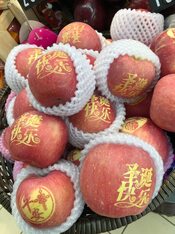
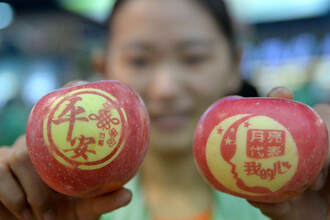
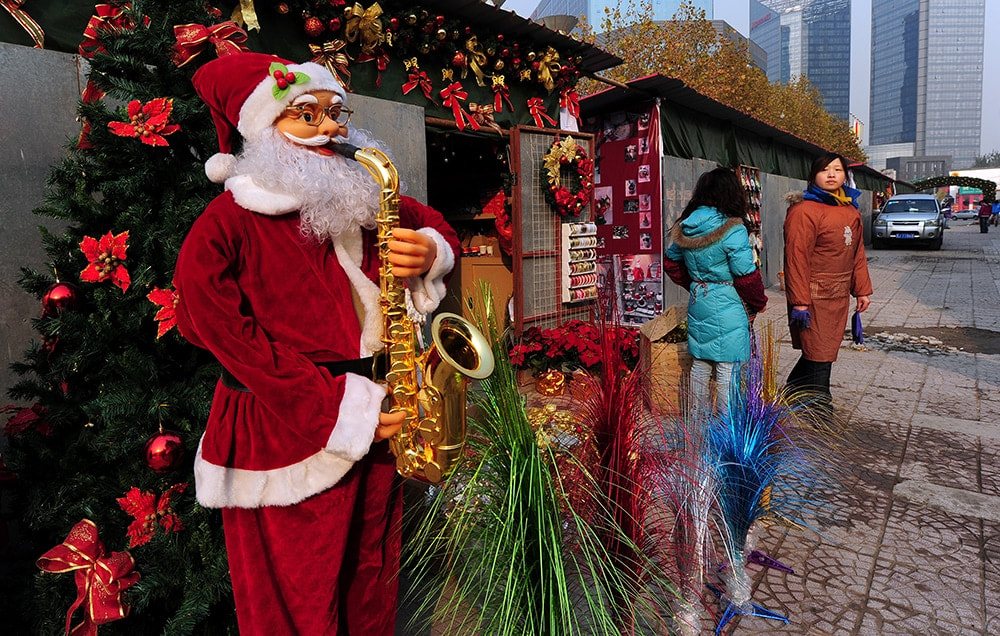

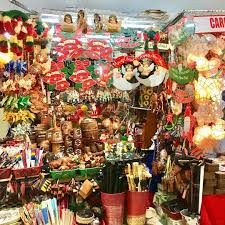

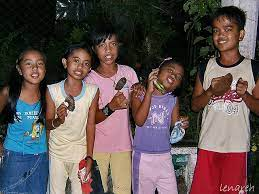
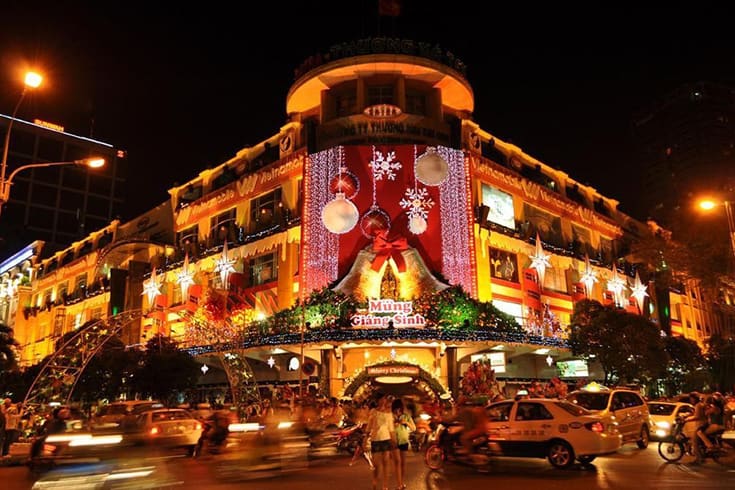
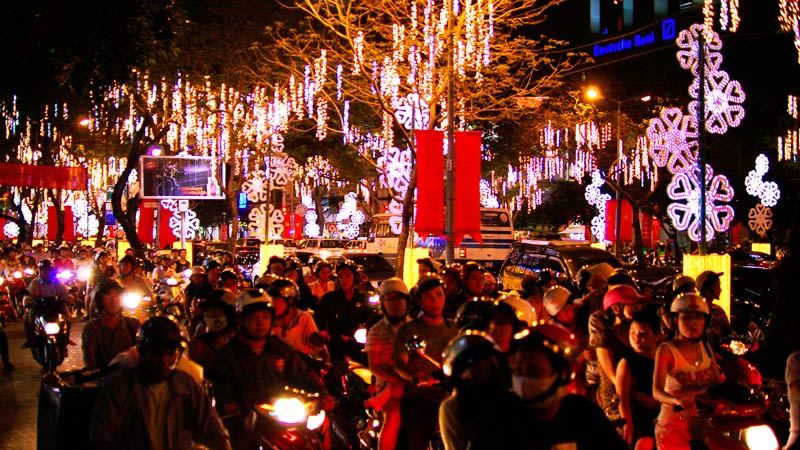
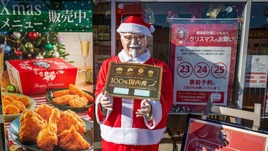
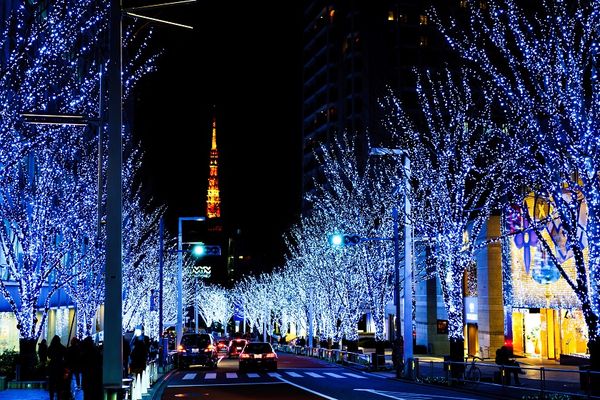
 RSS Feed
RSS Feed
